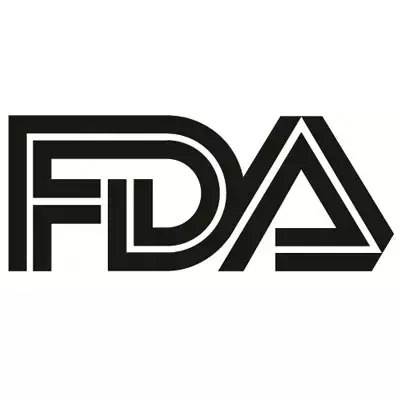- Home
- Medical news & Guidelines
- Anesthesiology
- Cardiology and CTVS
- Critical Care
- Dentistry
- Dermatology
- Diabetes and Endocrinology
- ENT
- Gastroenterology
- Medicine
- Nephrology
- Neurology
- Obstretics-Gynaecology
- Oncology
- Ophthalmology
- Orthopaedics
- Pediatrics-Neonatology
- Psychiatry
- Pulmonology
- Radiology
- Surgery
- Urology
- Laboratory Medicine
- Diet
- Nursing
- Paramedical
- Physiotherapy
- Health news
- Fact Check
- Bone Health Fact Check
- Brain Health Fact Check
- Cancer Related Fact Check
- Child Care Fact Check
- Dental and oral health fact check
- Diabetes and metabolic health fact check
- Diet and Nutrition Fact Check
- Eye and ENT Care Fact Check
- Fitness fact check
- Gut health fact check
- Heart health fact check
- Kidney health fact check
- Medical education fact check
- Men's health fact check
- Respiratory fact check
- Skin and hair care fact check
- Vaccine and Immunization fact check
- Women's health fact check
- AYUSH
- State News
- Andaman and Nicobar Islands
- Andhra Pradesh
- Arunachal Pradesh
- Assam
- Bihar
- Chandigarh
- Chattisgarh
- Dadra and Nagar Haveli
- Daman and Diu
- Delhi
- Goa
- Gujarat
- Haryana
- Himachal Pradesh
- Jammu & Kashmir
- Jharkhand
- Karnataka
- Kerala
- Ladakh
- Lakshadweep
- Madhya Pradesh
- Maharashtra
- Manipur
- Meghalaya
- Mizoram
- Nagaland
- Odisha
- Puducherry
- Punjab
- Rajasthan
- Sikkim
- Tamil Nadu
- Telangana
- Tripura
- Uttar Pradesh
- Uttrakhand
- West Bengal
- Medical Education
- Industry
Don't administer remdesivir with HCQS or CQ, FDA warns of drug interaction

The U.S. Food and Drug Administration has issued warning to health care providers about a newly discovered potential drug interaction related to the investigational antiviral drug remdesivir, an antiviral drug that is being evaluated as a potential treatment for the novel coronavirus disease 2019 (COVID-19) and has also been granted emergency use authorization (EUA) status for treating hospitalized patients with severe COVID-19.
The Food and Drug Administration has stated that co-administration of remdesivir and chloroquine phosphate or hydroxychloroquine sulfate is not recommended as it may result in reduced antiviral activity of remdesivir. The agency is not aware of instances of this reduced activity occurring in the clinical setting but is continuing to evaluate all data related to remdesivir.
The Food and Drug Administration is also revising their fact sheet for health care providers to include the warning that co-administration of remdesivir and chloroquine phosphate or hydroxychloroquine sulfate may result in less effective antiviral activity of remdesivir. The updated fact sheet for patients and caregivers will include additional information about possible allergic reactions and to alert patients to tell their healthcare providers if they are taking chloroquine phosphate or hydroxychloroquine sulfate.
Early this month, Gilead released the results of their phase 3 SIMPLE trial, which found that 5-day treatment with remdesivir in hospitalized patients with COVID-19 experienced greater clinical symptom improvement compared with standard of care.Following an evaluation of the emergency use authorization criteria and the scientific evidence available, the FDA issued an emergency use authorization (EUA) in May 2020 allowing for remdesivir to be distributed in the U.S. and to be administered intravenously by health care providers, as appropriate, to treat suspected or laboratory-confirmed COVID-19 in adults and pediatric patients hospitalized with severe disease. The safety and efficacy of remdesivir for the treatment of COVID-19 continue to be evaluated, and preliminary clinical trial results have shown that on average, patients treated with remdesivir had more rapid time to recovery.
"Over the course of this unprecedented pandemic, the FDA has issued emergency use authorizations for a variety of medical products after evaluating the available scientific evidence and carefully balancing any known or potential risks against the benefits of making these products available during the current public health emergency. We understand that, as we learn more about these products, changes may be necessary based on new data – such as today's updates for health care providers about a potential drug interaction and other important information about using remdesivir to treat COVID-19 patients," she said. "As we have done throughout the pandemic, the FDA continues to evaluate all of the emergency use authorizations issued and their related materials and will continue to make changes as appropriate based on emerging science and data."
The latest warning of Food and Drug Administration is based on a completed non-clinical study. Patrizia Cavazzoni, MD, acting director of the FDA Center for Drug Evaluation and Research, asserted that the FDA continues to prioritize the safety of Americans amid a rapidly-developing situation.
For further reference log on to:
1. Coronavirus (COVID-19) Update: FDA Warns of Newly Discovered Potential Drug Interaction That May Reduce Effectiveness of a COVID-19 Treatment Authorized for Emergency Use. News Release. FDA; June 15, 2020. Accessed June 15, 2020. https://www.fda.gov/news-events/press-announcements/coronavirus-covid-19..
Dr Kamal Kant Kohli-MBBS, DTCD- a chest specialist with more than 30 years of practice and a flair for writing clinical articles, Dr Kamal Kant Kohli joined Medical Dialogues as a Chief Editor of Medical News. Besides writing articles, as an editor, he proofreads and verifies all the medical content published on Medical Dialogues including those coming from journals, studies,medical conferences,guidelines etc. Email: drkohli@medicaldialogues.in. Contact no. 011-43720751


